3 Things the LOC/LCO Method Isn’t Doing for Your Natural Hair
Simply put, a lot of naturals’ biggest challenge when it comes to their natural hair is dryness. Many naturals have been told over and over again to utilize the LOC method—which stands for leave-in conditioner, oil and cream to combat dryness and add moisture to the hair.
Over here at Black Girl Curls, we’re here to tell you as licensed stylists and tight curl educators of a combined 10+ years, that the LOC/LCO method is load of crap.
There are so many methods out there claiming to moisturize and/or seal hair, that we’ve completely bypassed the fact that conditioner is the true sealant. We’re here to explain 3 things the LOC/LCO method isn’t doing for your natural hair.
#1: The LOC/LCO Method Isn’t Your “Sealant”
Sealing as it related to hair care has been grossly misunderstood. The act of acquiring and sealing moisture happens in the cleansing and conditioning process. During a good shampoo—dirt, debris, product, oils, etc are removed from the hair and the hair swells with water.
Conditioner IS your sealant. Let that sink in.
When cleansing and conditioning you’re moving down the ph scale. Typically your shampoo is a higher ph (ph between 6 & 9) depending on cleansing power) than your conditioner (ph between 3 & 5), and your water based styling products usually are within a (ph between 3 & 6) range. What we don’t discuss is oil doesn’t have a ph. So while raw oil can definitely be used as a protective layer on the hair (we don’t use them), it does not replace conditioner and is not your sealer.
#2: The LOC/LCO Method Isn’t Hydrating the Hair
Quite often, we see naturals applying raw oils or butters because their hair is dry or to seal moisture in on wash day. Oils and butters actually create a heavy coating on the hair strands, which makes it harder to absorb water. Hydra = water, moisture = water. Moisturized hair is hair with water in it. When hair gets dry after several days and the style isn’t popping anymore it’s likely time to refresh with a cleansing/conditioning/styling session again.
#3: The LOC/LCO Method Isn’t A Good Indicator of Your Hair’s Porosity
Porosity is defined as the hair’s ability to absorb moisture as determined by the condition of the cuticle. Before we even explain porosity, we’ve got to say that it is not as important as you may think it is. Your porosity doesn’t need a special product, method, or technique. The only thing that shifts with porosity can be (and not always) is conditioner selection.
Porosity is most important to the licensed professional working on your hair when you’re receiving chemical or heat services. Higher porosity hair is less able to withstand high heat and stronger/multiple chemical processes whereas lower porosity hair may need adjustments made to increase the efficacy of heat and/or chemical processing to achieve the desired results.
We see porosity as a scale between low and high dependent or how raised or closed the cuticle of the hair is. You can have multiple porosities on the same head of hair and even on the same hair strand. Floating a random strand of hair in water is not going to give you an accurate assessment of your porosity.
“Low Porosity Caveat: Sometimes when we think we have low porosity hair, we are really just dealing with the buildup of oils, butters, sebum, and styling products that haven’t been properly cleansed from the hair. These sealants, hydrators, moisturizers, etc that we are using to add “moisture” to the hair often have the effect of making the hair waterproof. Oil and water don’t mix right? This product overuse can perpetuate the dry, dehydrated state that a lot of natural hair is in.”
So, How Do I Combat Dryness?
The best way to combat dryness for your natural hair is through proper hair care. Proper hair care would mean that you’re:
Cleansing and conditioning your hair with high quality products every 5 to 7 days, based on your lifestyle
You’re using water soluble products and steering far away from raw oils, butters, food in the hair, and any other hydration “method” on the Internet
You’re partnered with a licensed stylist to receive regular maintenance cuts and more
Want more tips on how to retain moisture for your tight curl + natural hair? We cover all the natural hair fundamentals and more in our digital consumer education platform, The SeeSomeCurls Visual Library.
Our 1.1K+ course community of tight curl + naturals are shaving more than 50% of time off their wash day, being showered left and right with hair compliments, and are receiving direct support of a very encouraging community of tight curlies + naturals who have been exactly where you are.





